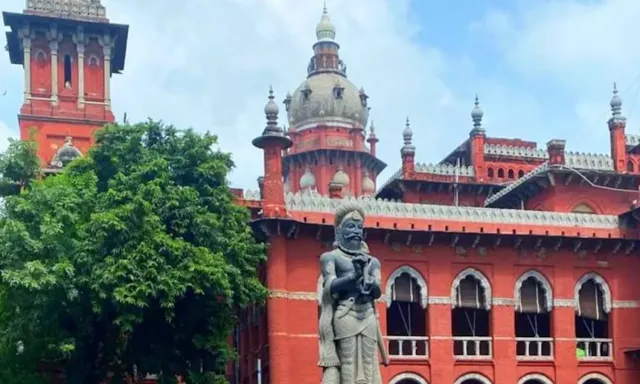The Madras High Court recently ruled on a significant case concerning the practice of Siddha medicine, highlighting the legal and ethical concerns surrounding the qualifications of practitioners in this traditional healing system. The court emphasized the importance of maintaining standards in healthcare, particularly in light of the increasing instances of unqualified individuals posing as medical practitioners. This decision is particularly relevant in the context of Siddha medicine, which, although ancient, requires rigorous training and certification to ensure public safety.
Case Background
The case originated from a petition filed by K. Jayakumar, a self-identified Siddha practitioner who possessed a diploma in Siddha Medicine from Tamil University. He argued that he had been continuously harassed by allopathic doctors and law enforcement, despite claiming that he adhered strictly to Siddha practices. His diploma, obtained in 2008, was central to his argument for practicing Siddha medicine. Jayakumar contended that the complaints against him were motivated by jealousy from allopathic practitioners who sought to undermine his clinic.
Court Proceedings and Findings
During the proceedings, Jayakumar asserted that his practice was beneficial to the community and claimed that he faced undue harassment. However, the Government Advocate countered this by highlighting the legal framework governing medical practice in the state, which mandates specific qualifications for practicing Siddha medicine. The court sought to understand the validity of Jayakumar's diploma and the implications of his continued practice despite the legal stipulations.
The Registrar of Tamil University provided crucial testimony, stating that the diploma course offered was intended solely to raise awareness about Siddha medicine and was never meant for professional practice. The course, initiated in 2007, was discontinued in 2008 after only one batch graduated. Among these graduates, many were not qualified to practice, as the diplomas issued clearly stated that they were not valid for professional practice.
The Court’s Conclusion
Justice B. Pugalendhi, presiding over the case, underscored the risks posed by unqualified individuals practicing Siddha medicine. The court noted that allowing individuals with only a diploma to practice could have dire consequences for public health, especially considering the growing number of incidents involving quacks in the healthcare sector. The court ultimately ruled against Jayakumar's request for protection, directing law enforcement to investigate the matter further and take necessary actions against unauthorized practice.
The court's ruling included a directive for the state government and the Director General of Police to ensure that no one holds a diploma in Siddha Medicine or practices it without appropriate qualifications. This decision reflects a broader commitment to public safety and the integrity of medical practice in Tamil Nadu.
Implications for Siddha Medicine Practice
This ruling has profound implications for the future of Siddha medicine in Tamil Nadu and potentially across India. It raises critical questions about the regulation of traditional medicine practices and the responsibilities of educational institutions in safeguarding public health. The court's decision sends a clear message: only individuals with proper training and recognition should engage in medical practice, particularly in fields that directly affect patient health and safety.
The Broader Context of Medical Regulation
The ruling is set against the backdrop of ongoing debates about the regulation of alternative medicine practices in India. Siddha medicine, part of India's rich tapestry of traditional healing systems, faces scrutiny regarding its practitioners' qualifications and the adequacy of oversight mechanisms in place. As such, the court's decision may serve as a catalyst for reviewing existing policies related to the regulation of traditional medicine.
The court's insistence on ensuring that only qualified practitioners operate in the healthcare space aligns with global trends emphasizing patient safety and professional standards. Regulatory frameworks are essential to mitigate risks associated with unqualified medical practices, especially in a country where traditional and modern medical practices coexist.
Conclusion
The Madras High Court's decision reinforces the necessity for rigorous standards in medical practice, particularly for traditional medicine systems like Siddha. By ensuring that only qualified practitioners engage in patient care, the court aims to protect public health and uphold the integrity of medical practices. As India continues to navigate the complexities of healthcare regulation, this ruling may prompt further discussions on how to effectively manage and oversee traditional healing practices in a way that prioritizes patient safety and welfare.
Through this ruling, the court has set a precedent that could impact how Siddha medicine is taught, regulated, and practiced in the future, thus safeguarding the interests of the public and ensuring that healthcare providers meet essential educational and ethical standards.










0 Comments
Thank you for your response. It will help us to improve in the future.